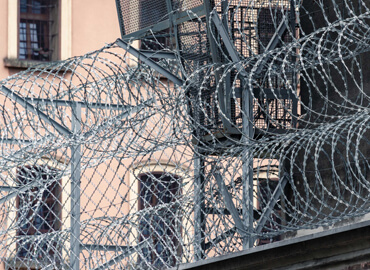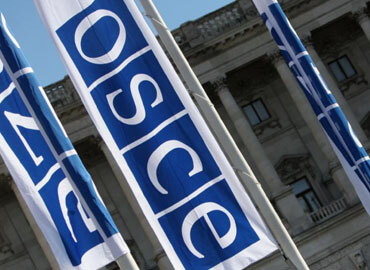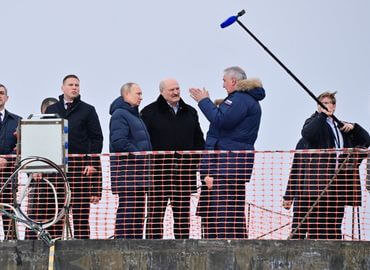Pre-election campaign period
Shortly after the changes in the Belarusian government in August 2018, Belarusian president Alyaksandr Lukashenka (Alexander Lukashenko) intensified his political activity. It indicated that one of the elections will likely be moved up to 2019, though both parliamentary and presidential elections were scheduled to take place in 2020. By separating the two campaigns in time authoritarian regimes intend to discourage political mobilization.
The 2nd European Games in June 2019 were beneficial to this purpose, and they inescapably became more a political than a sporting event. In the spring of 2019, amid worsened relations with the Kremlin and increased uncertainty in Belarus’s relationship with Russia, the Belarusian ruler made up his mind to hold parliamentary elections in November 2019, leaving the presidential elections for 2020.
Except for two 1,000-strong protest rallies in Minsk against the plans of further integration between Belarus and Russia in December 2019, no prominent street protest activity took place in Belarus last year. However, circumstantial evidence suggested a growing public mistrust toward the Belarusian authorities and Lukashenka personally. They were hit by a serious blow to their reputation at the 2019 Belarus’ Independence Day of 3 July. The festivities took a tragic turn after the fireworks killed a 64-year-old woman and injured 10 other spectators in Minsk. Despite state-owned media efforts to silence the incident, it was highly publicized online, particularly via websites of independent media, social networks, and Telegram channels.
In the absence of independent sociology in Belarus, assumptions concerning Lukashenka’s approval rating are based on indirect indicators such as people’s participation in state-organized events, the degree of accepted pluralism in various areas, and characteristics of state information policies.
Even prior to the 3 July accident, absenteeism at the 2nd European Games pointed at Belarusian citizens’ distrust of government. They largely ignored the European Games events, which took place from 21 June to 30 June 2019, despite enormous efforts of the Belarusian authorities. The European Games were widely labeled Hunger Games on social media due to state investments over $260 million, amid difficult economic conditions.
A completely “politically sterile” Belarus’s parliament of November 2019 was another indication of state authorities’ eroded reputation. Had his trust ratings been high, Lukashenka would have likely allowed opposition representation to have an extra bargaining chip in negotiations with the West, particularly amid tough talks with Moscow. The fact that there was absolutely no opposition in the parliament was therefore supposed to show the population and nomenklatura that the ruler retains full control of the situation.
In the past few years, a growing censorship on the internet and propaganda component in the state-owned media can also be seen as a manifestation of the political regime’s response to Lukashenka’s undermined reputation. The right to anonymity online was severely limited in December 2018 with the introduction of compulsory authentication of Belarusian internet users through SMS activation or by other means. In February 2018, the presidential administration newspaper Belarus Segodnya shut down the comments section on the website, apparently due to an increase in negative comments. Attempts to boost Lukashenka’s image by all means have led the state-owned media to an extreme departure from journalistic standards.
Another indicator of Lukashenka’s awareness of fallen approval ratings and his preparedness to increase degree of repression was the appointment of Major General Ihar Siarheyenka (Igor Sergeenko), Deputy Head of the KGB for counter-intelligence activities, as the head of the presidential administration in December 2019. Siarheyenka’s appointment was also an important milestone in the ongoing transformation of Belarus’s political regime. (More on this below.)
Pre-election mobilization and Lukashenka’s vague campaign
The presidential administration’s expectation to have non-emotional and otherwise nondescript elections of the type seen in 2015 failed to materialize due to the increased political mobilization. It was caused by economic grievances and exacerbated by inadequate response to the coronavirus epidemic clearly attributable to Lukashenka and his ruling coalition.
In early spring 2020, the normalization of relations with the Kremlin and personally with Vladimir Putin seemed to be the only significant challenging factor for Lukashenka’s election campaign. In the following months, the Belarusian strongman found himself in a much more complicated situation for several reasons.
The coronavirus epidemic began developing in Belarus in early March, exactly when the more active phase of Lukashenka’s election campaign began to unfold. Since early March the media coverage of Lukashenka’s working trips and other main topics by state-run media became much more positive and was designed to focus on (real or invented) success stories.
Over the course of March, state media covered the topics of successful diversification of oil supplies, the ceremonial presentation of passports to schoolchildren for the Constitution Day, the adoption of a presidential decree to stimulate the use of electric vehicles, and Lukashenka’s visits to rather flourishing Adani and Belgips companies.
The positive media coverage was suddenly overshadowed by the growth of the coronavirus epidemic. The Belarusian ruler did not hide his irritation, repeatedly criticizing excessive public attention to the coronavirus problem. Instead of quick adjustments to his campaign, Lukashenka repeatedly spoke out against extreme “corona-psychosis” and downplayed the risks of the epidemic. Instead of paying a single visit to a hospital or other medical institution, he made a number of controversial statements, which provoked public anger and jokes. Among other things, Lukashenka offered steaming in sauna, taking shots of vodka and working in the fields as a cure for coronavirus.
State-owned TV channels used a dozen manipulative tricks to convince the population of the insignificance of the coronavirus and the brilliant conduct of the Belarusian authorities. TV hosts repeatedly stated that no one died from the coronavirus in Belarus, cited absurd comparisons of mortality from other causes such as road accidents, and argued that world politicians were following Lukashenka’s wise actions. A representative online poll of Belarusian city residents conducted in April 2020 showed that over 70% of respondents wanted to be better informed about the spread of the coronavirus.
By June, Belarus was among 15 most-affected countries with the highest number of identified coronavirus cases per capita. At the same time, Belarus maintained one of the lowest infection fatality rates in the world. However, a number of observations (e.g., a very high share of coronavirus-related deaths among medical workers) suggest that the actual number of coronavirus-related deaths may be underestimated in official Belarusian statistics by 10 times or more. Moreover, in early May Lukashenka for a split second demonstrated a graph which was believed to contain alternative coronavirus-related statistics, with a higher number of identified cases than reported by the ministry of health.
A sheer drop of oil price over the spring of 2020 and COVID-19 pandemic implications negatively affected the economic situation in Belarus. Income from oil refining and the sale of potash fertilizers dropped, the service sector has suffered losses, and unemployment has risen. State support measures for small- and medium-sized businesses were limited and came late. As Lukashenka admitted in early July, he deliberately delayed their approval saying, “I held back this process, as I was waiting for you [business representatives] to take your money out of your pocket and invest it.” Furthermore, thousands of Belarusian households suffered from the disruption of circular migration flows as the entry to Russia and EU countries for most categories of Belarusian population remains restricted due to the coronavirus epidemic as of late July 2020.
Belarus belongs to the ten most censored countries in the world, according to the Committee to Protect Journalists 2019 report. This, combined with the large staff of state ideologists and a well-functioning system of electoral fraud, has made the Belarusian authorities quite successful at creating a myth about Lukashenka’s electoral majority. However, due to the growing popularity of new media and messengers like Telegram, access to information among Belarusian has greatly improved in recent years.
Despite various tricks by the Belarusian authorities to convince the population of the opposite (including the publication of allegedly secret documents with sociological data), during the 2020 election campaign an increasingly larger part of Belarusian society began to realize that Lukashenka’s opponents are in a majority.
A representative poll of Minsk residents conducted by the Institute of Sociology of the Belarusian Academy of Sciences throughout March and early April 2020 showed that the Lukashenka’s trust rating amounted to 24%, while the Central Election Commission enjoyed an even lower rating of 11%. Taking into account the effect of social desirability and deteriorated epidemiological and economic situation since that time, in July 2020 Lukashenka’s trust rating among Minsk residents hardly exceeded 15-20%.
While the share of Lukashenka’s supporters among the rural population and people aged 70+ is undoubtedly higher, a low level of support among the urban population is irrefutable. The people’s trust in government and Lukashenka in regional cities and smaller towns is unlikely to differ greatly from the capital region.
Earlier surveys of the population also indicate a high degree of dissatisfaction with living conditions. Asked «How would you generally assess your current life situation?,» only 6.9% of respondents answered “Better than average,” a nationwide survey of the Belarusian youth (aged 18-29 years) conducted under the auspices of the Institute of Sociology in 2017 showed. The option “It is difficult to live, but one can endure it” was chosen by 33.8% of respondents, whereas “The situation is dire, it is already impossible to endure” saw 21.1%.
Moreover, 55.1% of young Belarusians fully or partially agreed with the statement “The development of society requires somewhat drastic social and political changes from time to time.” Twice fewer (23.3%) disagreed with this statement to varying degrees, while the rest was uncertain. Today’s figures assessing the living situation are likely even more depressing. Hence the view that Belarusians prefer a vague concept of “stability” to whatever societal changes does not find support at least among young people.
By late April, Lukashenka faced a stark new political reality after high electoral support of his main political opponents became very clear. Viktar Babaryka, former head of the Board of Belgazprombank, collected around 435,000 signatures in his support, more than any other democratic candidate in Belarus’s history. Sviatlana Tsikhanouskaya, a wife of popular blogger Siarhei Tsikhanouski who was put in custody on dubious charges, also managed to collect over 100,000 signatures required for registering as a presidential candidate, despite multiple arrests of initiative group members and continuous state counteractions.
Amid an unprecedented political mobilization, Lukashenka’s election campaign took vague forms and became rather reactive. It proved to be proactive only in the part of repressive actions as explained in greater detail below. The Belarusian ruler even canceled his traditional annual Address to the People and Parliament. Throughout July Lukashenka repeatedly mentioned “five pandemics” that Belarus is witnessing, speaking about carbon, economic, political, and information pandemics in addition to coronavirus. His election campaign’s main message can be tentatively formulated as «We are together, we are one country,» while Belarus’s independence and sovereignty are presented as his primary achievements.
Lukashenka’s domestic political priorities
To forestall a growing political mobilization of the population, since April Alyaksandr Lukashenka prioritized the following domestic political actions:
- A campaign of repression and discrediting the most popular political opponents.
- Larger control over information flows, including through reprisals against popular bloggers.
- Intimidation of civilian population.
Both of Lukashenka’s most popular political opponents, Siarhei Tsikhanouski and Viktar Babaryka, are facing lengthy prison terms on various dubious charges. Tsikhanousky was detained in Hrodna following a suspected provocation against him with the participation of a woman who was later identified as a Minsk-based prostitute. Among other things, Tsikhanouski is accused of threatening the life of Lidziya Yarmoshyna, the head of the Central Election Commission. The accusation is based, among other things, on a slogan mentioning Yarmoshyna and containing a Russian word that means “to swat,” which was present at one of Tsikhanouskaya’s public meetings.
Viktar Babaryka and his son Eduard, head of his election campaign headquarters, are accused of various financial crimes. State officials including Lukashenka have repeatedly used derogatory statements about Tsikhanouski and Babaryka and asserted their guilt. State-owned TV channels broadcast a number of reports using fragments of investigative actions and claiming Babaryka’s implication in crimes, in violation of the presumption of innocence.
As for the greater control of information flows, several popular YouTube bloggers and Telegram channel authors were arrested on charges of preparing mass events that grossly violate public order. Over 40 journalists have been detained when covering peaceful protests over the two past months, some of them were beaten by law enforcement officers. The Belarusian authorities began experimenting with shutting down mobile internet during protests. The Prosecutor’s Office made a statement that the reading of news on the internet by public servants may amount to a corruption offense.
It was reported in early June that by the decision of the Academy of Sciences, online polls on political issues were equalized to opinion polls, which, according to the law, must be licenced. Therefore by conducting an online poll Belarusian media outlets risk to be fined and to receive a warning from the ministry of information. In the event of two warnings during a calendar year a media outlet in Belarus may be closed as ordered by court decision.
At least 1,140 arbitrary detentions took place between 6 May and 20 July, over 500 people were either fined or received administrative arrests, human rights defenders report. Lukashenka and representatives of law enforcement agencies made a number of statements aimed to intimidate the population. In early June, Lukashenka praised bloody suppression of Andijan protests by the former Uzbek ruler Islam Karimov. State-run TV channels showed the KGB chief Valery Vakulchyk taunting a 81-year-old lady who had publicly criticized Lukashenka’s policies.
Lukashenka repeatedly spoke about readiness to prevent a “Maidan” at any cost, groundlessly accusing his political opponents of intention to “organize a massacre in the square.” Interestingly, a number of marginal Russian sites also published stories about possible serious provocations by “radical Belarusian nationalist groups” in the Mahiliou and Viciebsk regions adjacent to Russia.
Political regime transformation: Towards a stronger military rule
While a number of factors, primarily historically lowest level of public’s trust, make Lukashenka’s ongoing election campaign most challenging, he benefits from the highest degree of centralization of power in sovereign Belarus’s history and unprecedented strength of the security apparatus.
Belarus’s political regime is often categorized as a classic personalist type. For two decades the capacity of all state institutions in Belarus was kept very low so as not to give rise to organizational centers of opposition. In accordance with the categorization of political regimes by Juan J. Linz and Alfred Stepan, Belarus’s political regime is likewise sometimes classified as sultanism. This type of political regime is characterized by the extreme personal presence of the ruler in all elements of governance. In sultanism, the ruler is not bound by any rules or a given ideology. In their final stages of existence, sultanisms often have a very narrow social basis, often restricted to a small circle of its clients.
The original Geddes classification of authoritarian regimes reflects three ideal types: personalist, military, and one-party dictatorships. Based on the approach that differs from the existing practice of creating categorical typologies of autocratic regimes, one can speak about the recent, or rather ongoing evolution of Belarus’s political regime to a personalist military type. Indeed, lately political scientists point at the practical need to distinguish between collegial and personalist military rule.
Acknowledging that authoritarian regimes of any type almost always rely on some degree of repression against competing groups, personalist military dictatorships are characterized by much stronger military rule. Under the military not only the army, but security bodies and other law-enforcement agencies may be thought to include.
The appointment of KGB Major General Ihar Siarheyenka as the head of the presidential administration in December 2019 was an important milestone in the evolution of Belarusian authoritarianism towards a personalist military type. Until 2016 Siarheyenka was blacklisted by the EU for repressions against civil society and democratic opposition in the Mahiliou region and in Belarus. Lukashenka also put Mikhail Miasnikovich, a powerful figure in a ruling coalition, aside by sending him to Moscow upon his appointment as Chairman of the Board of the Eurasian Economic Commission.
The influence of persons specialized in the use of force in the Belarus’s ruling coalition increased even more after the June 2020 government reshuffle. Raman Halouchanka (Roman Golovchenko), who previously chaired the State Authority for Military Industry and served as a chief specialist of the State Secretariat of the Security Council, replaced liberal-minded economist Siarhei Rumas as a new prime minister.
Other than that, former KGB Deputy Chairman Major General Ivan Tertel replaced Leanid Anfimau with background in the industrial sector and management as Chairman of the State Control Committee. Tertel has been very zealous in putting his efforts to persuade the Belarusian population and international community in Babaryka’s crimes. At the closed meeting with the US and EU countries’ diplomats on 18 June 2020, which was dedicated to the Belgazprombank criminal case, Tertel reportedly played a leading role and acted rather aggressively, including towards Belarus’s foreign minister Uladzimir Makei.
A ‘civilian’ component in Lukashenka’s ruling coalition has never been as sidelined from decision-making processes as it is now. Decision-making in sovereign Belarus has never lied in the hands of the so strong military bloc consisting of siloviki as chairmen of the presidential administration and the government, the Security Council, KGB, Ministry of Interior, State Control Committee, Investigative Committee, Prosecutor’s Office, and other law enforcement agencies.
Such political transformation poses a coup threat against an eventual nascent democratic regime in Belarus until it is reformed. “The anticipation that the military will be reformed in the future acts as an additional motivation for the military to undertake coups against democratic governments,” one comparativist political study says.
The recently increased military rhetoric of the Belarusian ruler and Belarus’s state-run media reflects the evolution of Belarus’s political regime. In mid-July 2020 Lukashenka advocated for a constitutional amendment preventing a person who did not serve in the army, to become a president. Unlike Russian leadership, he did not postpone the Victory Day military parade on 9 May 2020 amid a surge of coronavirus cases, despite widespread public criticism. Reporting about Belarus’s Independence Day of 3 July 2020, state-owned TV channels claimed it has much in common with the Victory Day, making parallels between WWII war and continuous struggle for Belarus’s independence and sovereignty led by Lukashenka.
The dynamics of the Belarus-Russia relationship
In response to Minsk’s wishes for Moscow’s greater economic support, including in the form of compensations for Russia’s oil tax reform and lower gas prices, in late 2018 the Kremlin articulated the integration ultimatum. It lies in the readiness to provide Minsk with more beneficial energy deals, subject to deeper integration of Belarus with Russia in various spheres within the framework of the 1999 Union State Treaty. This would involve the introduction of common currency, creation of single Tax and Civil Codes and supranational bodies, and approximation of Belarusian legislation with Russia’s in many other spheres.
Over the last two decades Lukashenka skillfully traded geopolitical loyalty and military cooperation for Russia’s generosity. The Kremlin, however, pointed to a change in the model of bilateral relationship, declining the long-standing scheme “oil and gas in exchange for kisses” and demanding the shares of Belarus’s sovereignty instead. Since the beginning of 2019, the Belarusian authorities have been involved in intensive negotiations with Moscow over the program of action on stepping up integration. Its content and course were concealed as much as possible from the Belarusian parliament and the public.
Although the program of action was initialed and a list of 31 integration roadmaps was approved by the prime ministers of Belarus and Russia on 6 September 2019, none of these documents has been published. In December 2019 former Russian prime minister Dmitry Medvedev stated that the 31st integration roadmap foresees the introduction of a single currency and creation of supranational bodies, something that Lukashenka repeatedly denied of being discussed. In the 31st integration roadmap Moscow reportedly proposed to discuss the creation of a single Court of Audit, single customs, tax, and competition authorities, as well as common regulating agencies in transportation, industry, agriculture, and other spheres.
The program of action was not, however, approved by the Belarusian and Russian leaders on 8 December 2019 to coincide with the 20th anniversary of the Treaty on the Union State. The negotiation process was put on hold since December 2019. The Belarusian authorities conditioned the signing of integration agreements with top-priority concessions from Russia, primarily in terms of oil revenue compensation and reduced gas price, and were reluctant to discuss the 31st integration roadmap, presenting it as the issue of a distant future. In turn, the Kremlin counted on Minsk’s written commitments as for the deeper integration within the agreed timeline, before providing concrete economic concessions in the energy field and others.
One can assume that the erosion of Lukashenka’s reputation among Belarusian officials has been relentless since late 2018 due to unsuccessful series of negotiations with Putin. The two leaders met 11 times, including for 2- and 3-day negotiations, between December 2018 and December 2019. By 2020 Minsk did not succeed in getting either compensations for Russia’s oil tax reform or lower gas prices. Over the years, Lukashenka’s ability to provide Russian resources has shaped him as an irreplaceable earner. In the event of a conclusive inability to find a mutually beneficial solution with Moscow, an accelerated Lukashenka’s delegitimization among nomenklatura may occur. As of mid-July 2020 no signs of disloyalty in his ruling coalition were observed.
A growing political mobilization and heightened repressions in Belarus, and hence worsening relations with the West, increase the probability of a new Lukashenka’s integration package with Russia in exchange for Kremlin’s political and economic support.
Prior to or immediately after the two previous presidential elections, Lukashenka ensured the deepened integration between Belarus and Russia. Ten days before the presidential elections of 19 December 2010, Lukashenka and Medvedev agreed on the terms of Belarus’s accession to the Common Economic Space. Shortly after the brutal dispersal of street protests on election day, all 17 documents pertaining to the CES creation were ratified by Minsk. A year before the 2015 presidential elections, Minsk ratified the Treaty on the Eurasian Economic Union. For each of these deals, Belarus was awarded with larger oil revenues.
After a series of public squabbles between Belarusian and Russian officials over the response to the coronavirus pandemic in the spring of 2020, a dialogue over deeper integration has intensified in June.
During the online discussion “Russia and Belarus: The post-pandemic future” on 4 June, Belarusian Ambassador to Russia Uladzimir Siamashka (Vladimir Semashko) stated, “Minsk is ready at any time to sit down at the negotiating table [to discuss integration roadmaps] if we have the goodwill of our Russian partners and friends.” Such a moment for the continuation of negotiations may come in September of October, Siamashka added.
During the same event Russian ambassador Dmitry Mezentsev said that the West follows Brzezinski’s commandments and wishes to tear Belarus away from Russia. He also criticized the fact that on account of “far-fetched, artificial pretexts and obstacles” resulting from “political nuances and conjuncture” Belarusian goods cannot make it to Crimea.
On June 5, an online meeting of the High-Level Group of the Council of Ministers of the Union State of Russia and Belarus was held. During the meeting, several issues were resolved, including those related to integration roadmaps, while other issues were postponed until September.
Another online conference with the participation of high-ranking officials of Belarus and Russia and Secretary of the Union State Grigory Rapota was held on 10 June. At the conference, entitled “Russia and Belarus: Horizons of Strategic Cooperation,” Mezentsev mentioned Siamashka’s promise to continue negotiations in the fall and again spoke about alleged attempts by external forces to tear Belarus away from Russia. In his opinion, soon such attempts will surely be “even tougher and more refined.”
During the online conferences, it turned out that Minsk and Moscow have different understandings of the number of agreed integration roadmaps. According to Mezentsev, 27 documents out of 31 have been approved, whereas Siamashka stated that 28 and a half out of 30 roadmaps had been agreed upon. Apparently, the Belarusian side continues to ignore the existence of the 31st roadmap, although in early July it was confirmed by the Secretary of the Union State Grigory Rapota.
The format of future Belarus-Russia relationship remains in the state of uncertainty given the strained personal relationship between Lukashenka and Putin, upcoming presidential elections in Belarus amid low Lukashenka’s electoral rating, and possible negative impacts that the novel coronavirus outbreak is poised to bring for both counties. At the same time, likely due to Lukashenka’s signals to Moscow about his readiness to proceed with a new integration round in exchange for the much needed political support, the bargaining process over deepened integration restarted in June. The rather restrained reaction of the Russian side to the Belgazprombank criminal case and recent statements by Russian officials favouring further integration indicate that the Kremlin is eyeing the possibility to strike a new integration deal with the politically weakened Lukashenka.
Dilemmas and Future Scenarios
In Belarus the state organs such as courts, electoral commissions, and Prosecutor’s Office are in the hands of the ruler and his inner circle. It allows him to unilaterally control the organization, monitoring, and adjudication of elections. Opposition unity and a consequent threat of massive civil disobedience can compel autocrats to hold clean elections and leave office by triggering splits within the state apparatus, one article suggests.
Although the contours of the Belarusian opposition unity emerged on 16 July with the decision of Viktar Babaryka’s and Valery Tsepkala’s campaign headquarters to unify around Sviatlana Tsikhanouskaya, so far no genuine threat of massive massive civil disobedience was posed, therefore a vast electoral fraud remains very likely.
The existing institutions have not been transformed and election-related malpractices continue. For the upcoming presidential election, out of 1,989 members of the territorial election commissions only two represent opposition parties, whereas out of over 63,000 members of local election commissions only a few represent the Babaryka-led “Honest People” initiative. Minsk’s refusal to invite OSCE / ODIHR observers also points to the Belarusian authorities’ plans to announce another Lukashenka’s devastating victory, without any regard for real voting results.
The two most important factors for the further development of the political situation in Belarus will be the Kremlin’s position and the level of opposition mobilization capacity. The West’s actions will hardly be decisive given its very limited leverage over the situation in Belarus.
In the event of limited mobilization capacity with no genuine revolutionary threat, Lukashenka will get more maneuverability in negotiations with Moscow. However, even in this situation, it will not be easy for him to continuously postpone a new integration deal with Russia. Faced with an increasingly problematic balance of payments, Minsk’s needs for rapid external financial assistance will likely increase in the coming months. In this situation the West may find itself in an awkward position: To provide macroeconomic assistance to Belarus despite mass violations of human rights and electoral standards, or to leave Minsk alone in tough negotiations with Moscow which will increase risks to Belarus’s sovereignty.
The less the ‘civilian’ component in the Belarus’s ruling coalition, the lower the probability of its split over the issue of a new integration package with Russia will likely be. However, one cannot rule out a repeated opposition’s mobilization stemming from the activation of deepened integration talks.
If, despite the efforts of repressive apparatus, the opposition’s mobilization capacity remains high and massive acts of civil disobedience take place, the likelihood of a new Belarus’s integration deal with Russia will increase exponentially. In the situation of an even greater Lukashenka’s delegitimization the Kremlin will, however, face deeply uncomfortable choices: To provide Lukashenka a life-saving support, to push him into a deeper integration but create a time bomb for Russia’s image among Belarusians, or to avoid providing political support to Lukashenka therefore risking to get a more problematic bilateral relationship with an eventual new Belarusian leadership.
The first option entails a combination of heightened repressions in Belarus, possibly with Russia’s direct or indirect support in one form or another, and buying loyalties thanks to greater economic support from Moscow. This scenario will result in the coercion of the Belarusian population towards a new reality of a deeper integration with Russia under the continuous rule of Lukashenka, even in the situation of his record low approval rating.
The other option, envisaging Moscow’s deliberate lack of political support to Lukashenka amid possible massive civil disobedience in Belarus, is rather improbable. Such form of the regime’s replacement in Russia’s vicinity, particularly in the neighbouring Belarus, will be seen in the Kremlin as an undesirable turn. Moscow will unlikely play such a risky game and bet on any alternative political force in Belarus, if only Lukashenka’s position becomes extremely weakened. This development, however, would rather prompt Moscow to force him into a new integration deal on Russia’s terms. At the same time, the odds of success for deliberate strategies of any major actor will lengthen in the light of quickly evolving circumstances and imperfect information.











